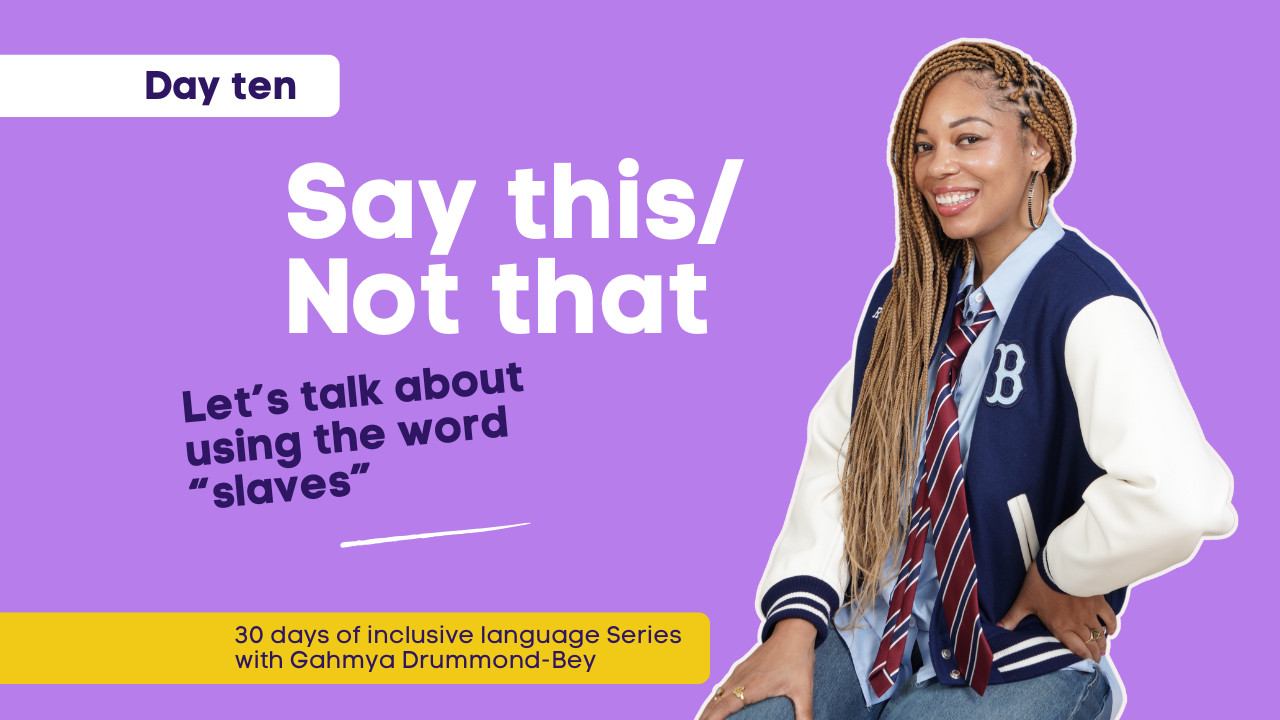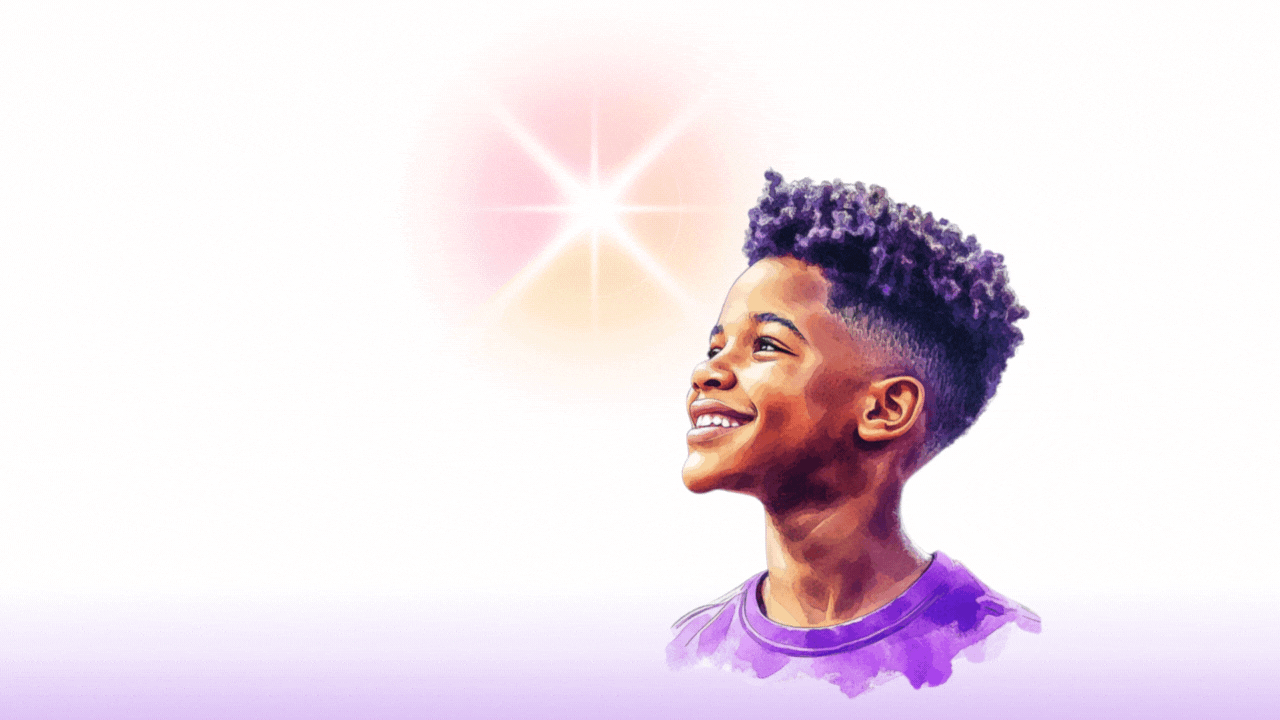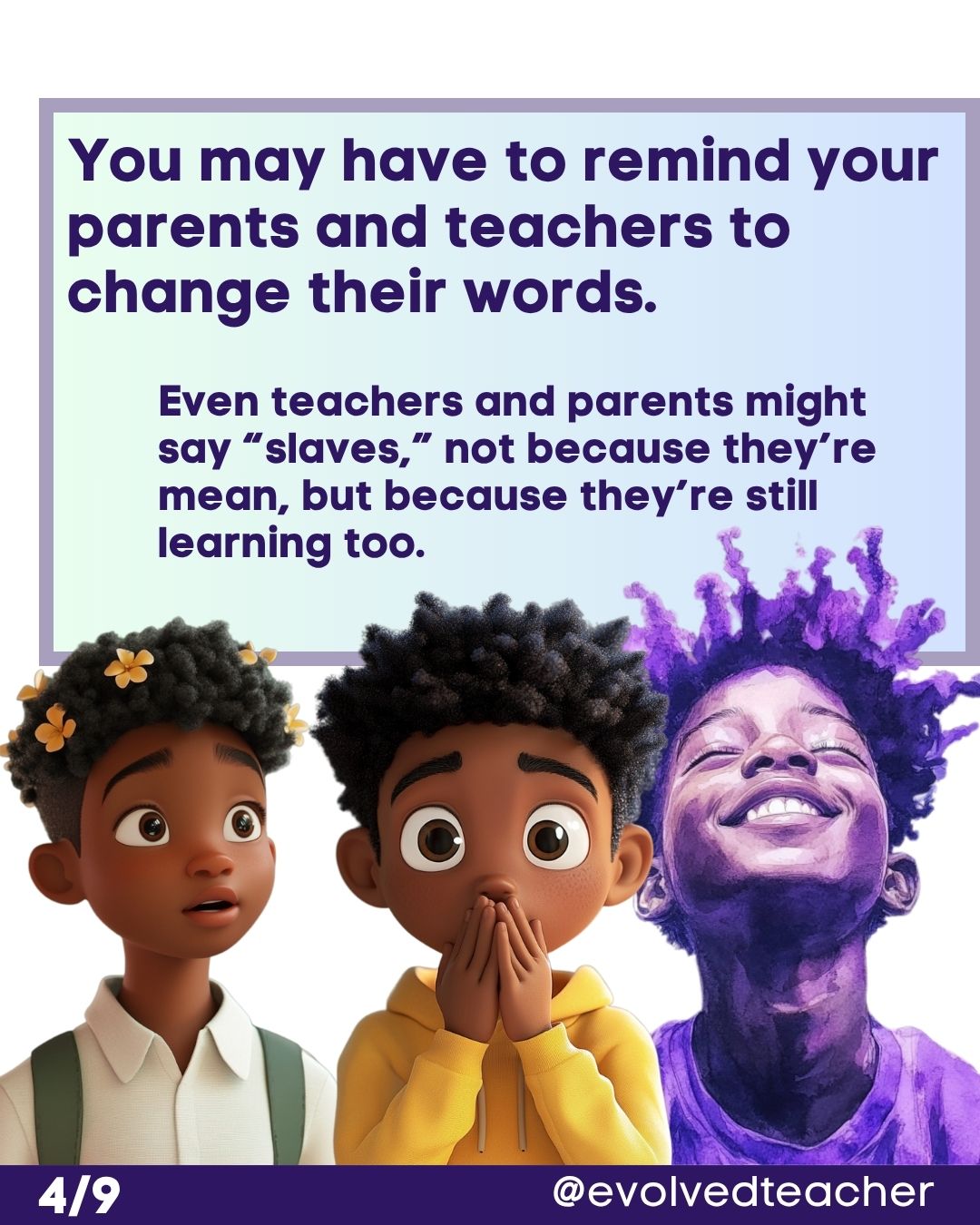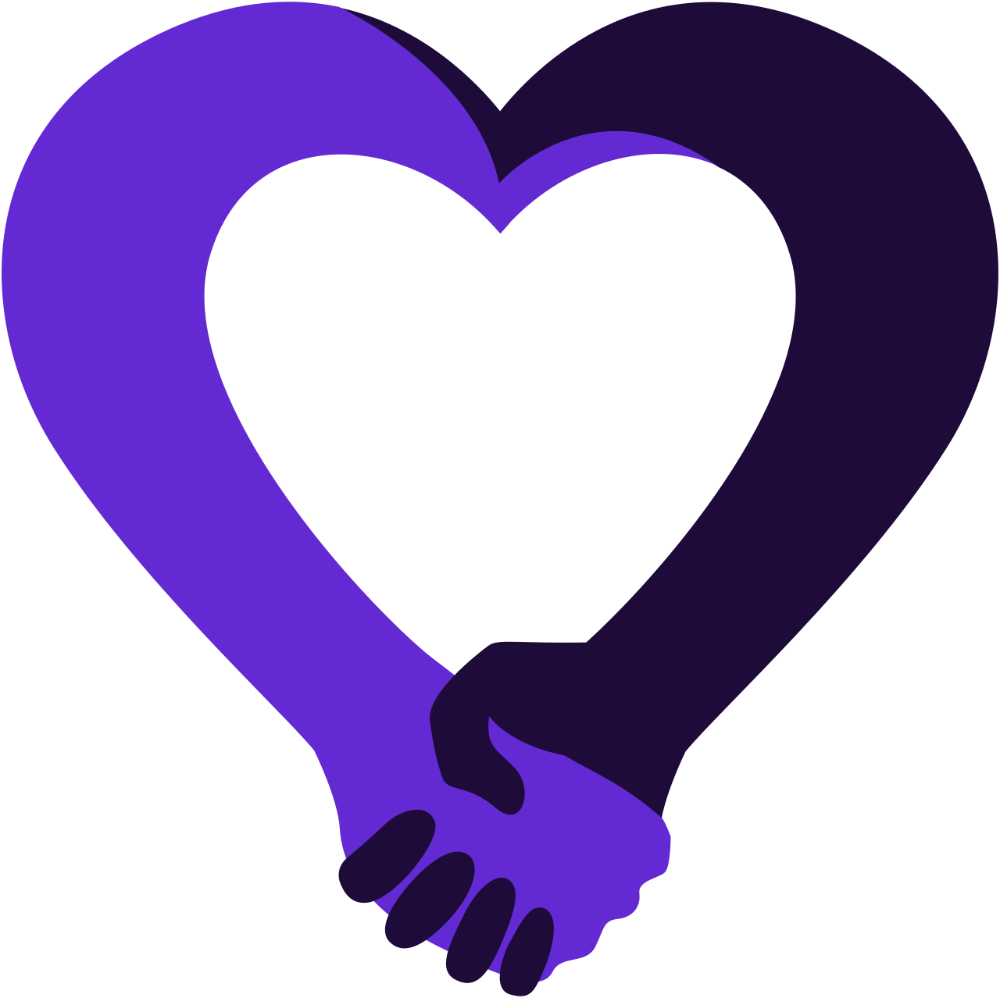Words Matter—Especially This One.
Jun 12, 2025
I began this series as a fast way for educators and families to empower the vocabularies and self-esteem of their young ones.
We know you're busy. That’s why it’s just one word a day. But words are powerful. When we teach kids how to use them with intention, they become more empathetic, more aware, and more equipped to speak up with courage.
Today’s word is one that often shows up in textbooks, museums, and even classrooms, but it deserves a correction.
We’re talking about the word “slaves.”

Why this matters:
When we use the word “slaves,” we reduce whole people to what was done to them.
We erase their humanity and define them only by their suffering.
But when we say “enslaved people,” we remind ourselves, and our children, that these were human beings first.
They were mothers, fathers, builders, farmers, artists, and inventors whose freedom was taken from them.
Using person-first language doesn’t erase history, it tells it truthfully, and with dignity.

Empowering Kids to Correct Adults
What I also love about having this conversation is that it also highlights something else that is both important and empowering: kids need to know that there are times when it is not only okay, but necessary to correct the adults around them.
In this case, sometimes, even teachers and parents might still say “slaves.”
Not because they’re being unkind, but because they’re still learning too.
This is your child’s chance to grow as a leader.
✨ You can teach your child to say:
“I just learned that we should say enslaved people, because they were people first.”
✨ You can affirm:
“You don’t need to know everything to speak the truth. Even kids can help adults do better.”
This day in the series doesn’t just correct a word.
It teaches your child how to speak up, with clarity and kindness.
Try This at Home:
-
Ask your child: “Have you ever heard someone say the word ‘slaves’? What do you think that means?”
-
Prompt them: “Why do you think it matters to call someone by who they are, not just what happened to them?”
And just like always, if you have a personal story to add, that always helps. Stories create connection.
Trusted Research on This Topic:
-
NPR
"Slave or Enslaved" -
Teaching Tolerance (Learning for Justice)
Let’s Talk! Discussing Slavery with Children
You can receive these emails directly to your inbox.
Sign up here.

